Meet a FLAS Recipient
Meet a FLAS Recipient
Giselle Fagundes-Draper
Latin American Studies Major,
Portuguese & Brazilian Minor
Giselle Fagundes-Draper
Majoring in Accounting and Latin American Studies and minoring in Portuguese and Brazilian Studies
 My name is Giselle Fagundes Draper and I am a Senior at the U. I am a double major
studying Accounting and Latin American Studies with a Minor in Portuguese and Brazilian
Studies. This is the 3rd year I have received FLAS for Portuguese. As a Brazilian-American,
FLAS has helped me improve my Portuguese as a heritage speaker. It has helped me better
communicate with my family members and understand more about my own culture. FLAS
has changed my life and opened a new part of me that has always been there, but I
didn't know how to connect with. Because of FLAS, I feel more like myself and have
become more in tune with my culture, something I will cherish forever. I hope to use
Portuguese in my future career and I hope to one day work in Brazil. I encourage anyone
who is considering applying to just do it. Start the application process early, and
get to know the faculty and staff in your department, it will go a long way.
My name is Giselle Fagundes Draper and I am a Senior at the U. I am a double major
studying Accounting and Latin American Studies with a Minor in Portuguese and Brazilian
Studies. This is the 3rd year I have received FLAS for Portuguese. As a Brazilian-American,
FLAS has helped me improve my Portuguese as a heritage speaker. It has helped me better
communicate with my family members and understand more about my own culture. FLAS
has changed my life and opened a new part of me that has always been there, but I
didn't know how to connect with. Because of FLAS, I feel more like myself and have
become more in tune with my culture, something I will cherish forever. I hope to use
Portuguese in my future career and I hope to one day work in Brazil. I encourage anyone
who is considering applying to just do it. Start the application process early, and
get to know the faculty and staff in your department, it will go a long way.
Christine Schulz
MA Latin American Studies - Political Science, Public Policy, Public Administration, History
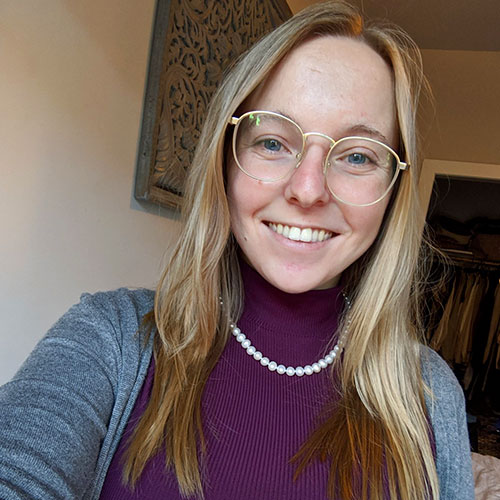
Many of the politics and social movements I investigate, express and define their objectives in the Quechua language. I have developed a better understanding of these movements as a result.
I began studying Quechua my first semester at the U. Learning this language has been essential to deepening my understanding of Latin American culture and politics, and society. This language defines many people's way of life. It expresses specific meanings for interactions with others, among communities, and with nature. I think this understanding has helped me develop research that more accurately reflects the worldviews of the populations that I study. I am also eager to use these skills to meet more people and experience new places.
Language study provides insight into cultures and beliefs that is difficult to grasp through a simple translation. Language study indicates what is important to a culture and how they view and interact with the world. Traditional customs and knowledge are inherent to language. Not only is language study important for preserving culture and knowledge, it is important for sharing it.
Definitely apply! It gives you a great opportunity to pair the study of language and culture. This is useful for any type of research and life in general. For research, you better understand the people and topics you study. You also have access to a wider pool of sources. In life, you can meet new people and learn from them. My greatest language experience was learning about religious customs from a shop owner in Mexico. This interaction would not have been possible without my language skills. The FLAS gives you the tools to have these types of experiences.
Rosie Ojeda
Ph.D candidate studying in the Department of Education, Culture, and Society
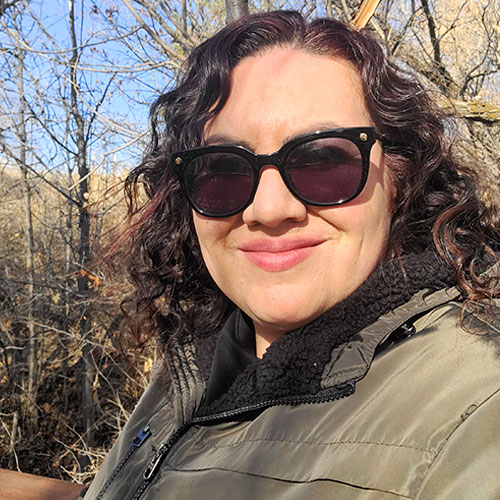
I am a second year PhD Student in the Department of Education, Culture, and Society and am studying Nahuatl at the intermediate level. FLAS has allowed me to study Nahuatl this past summer and to continue studying this academic year. Not only is Nahuatl one of my ancestral languages (I am Puerto Rican and Mexican), but it is related to my research as well. I am interested in the relationship between culture and language because both influence thought. Studying the Nahuatl language has given me insight to the Nahuatl culture and Indigenous Mexican culture in general, and is teaching me the way some of my ancestors thought.
For those of you thinking of applying, I would ask, what is stopping you from applying? Yes, it does take a lot of work to learn a new language, but what you learn will be invaluable!
I hope to teach or consult with educational institutions about centering education around Indigenous knowledge and culture.
Chantelle Hartling
Majoring in Social Work and International Studies and minoring in Spanish and Psychology
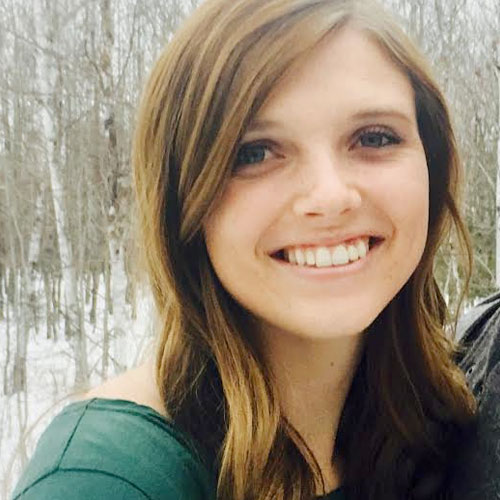
My name is Chantelle Hartling and I am a junior at the University of Utah. I am double majoring in Social Work and International Studies and have minors in Spanish and Psychology. I speak fluent Spanish and I chose to study Portuguese because it is a language I have always wanted to learn and something I felt I would be applicable to my areas of study. I plan on working with refugees in the future and being able to speak three languages will allow me to help a greater number of people. I would also love to do humanitarian work in lower income regions throughout South America.
Learning a new language is going to benefit your life in numerous ways, but what’s essential is how you plan to use that skill. My advice for submitting a successful application is to be specific in your statement of purpose so it is clear what you plan to do with this opportunity in the future.
The FLAS scholarship has been so beneficial for me throughout this past year because it has not only allowed me to begin learning a new language, but also to learn about culture and customs of Portuguese speaking countries around the world, and the required area studies classes have made it possible for me to finish my minor in Spanish. Receiving this scholarship has been an amazing experience and has greatly enriched my university education.
Brisa Zavala
Majoring in Latin American Studies & Chemistry
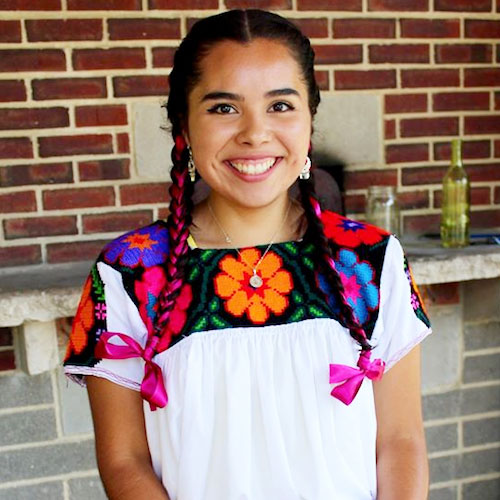
Since I entered the University of Utah I have realized that our challenge as students is not to pick one area of interest and go down a paved path, but to gather all of our interests and pave our own unique path. I am currently an undergraduate double majoring in Chemistry and Latin American studies, and studying Nahuatl. Finding a way to merge my love for the sciences and passion of learning Nahuatl has been a challenge; however, I have succeeded in paving my own path due to the experiences I have had as a FLAS recipient.
Receiving the FLAS fellowship has validated the importance of learning Nahuatl and has encouraged and supported my interdisciplinary interests. FLAS has provided me with many opportunities. It has allowed me to go to Yale University twice, to participate in a six-week intensive course, filled with modern Nahuatl, classical Nahuatl, and cultural activities. It has enabled me to continue to take Nahuatl and Latin American studies courses at the University of Utah. It has provided financial means to attend two intensive winter courses in Zacatecas, Mexico and visit the communities of my instructors in Chicontepec, Veracruz over two spring breaks. During my two visits to Chicontepec I have been able to interact with people of the communities –in Nahuatl– and listen to the elderly share stories, anecdotes and experiences in Nahuatl. FLAS has been my ticket to escape the STEM bubble I was in as an incoming freshman. It has granted me the opportunity to meet students from all over the world, studying different disciplines at various educational levels (bachelor’s, master’s, Ph.D.); from these interactions develop my future educational and career plans.
Thanks to the opportunities and experiences I have had as a FLAS recipient I have decided to continue on to graduate school and I am working towards creating an environment, both in academia as well as in society, where “traditional” medicine of indigenous communities is valued in the same regard as “modern” medicine thus helping to preserve the knowledge and practice of traditional medicine in Nahua communities.
Logan Frederick
Majoring in Geology
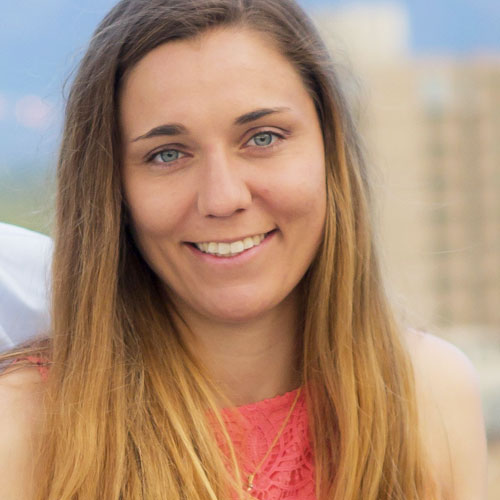
I am a PhD candidate in the Department of Geology and Geophysics at the University of Utah and have been a recipient of a FLAS scholarship for the last two academic years to continue my linguistic study of Ecuadorian Quechua. FLAS has allowed me the opportunity to not only increase my language skills, but also to expand my understanding of the indigenous Quechua people in disciplines like anthropology, geography, and public health policy. These area studies classes, which are also a part of the FLAS program, help me to widen the context of my research to be more interdisciplinary. My research is a part of a larger project in Ecuador focused on potential remediation of mining-impacted rivers. Culture, health, and physical science are all important aspect when exploring potential remediation. As I plan to continue working in the nexus between public health and water quality throughout my doctorate education and into my future career as a hydrological consultant, the language skills and the interdisciplinary nature of area studies courses will allow me to succeed in promoting safe water for native peoples. I would advise future FLAS applicants to use the FLAS program to not only learn a language, but also to gain a wider prospective into the interdisciplinary nature that underlies all academic disciplines.

